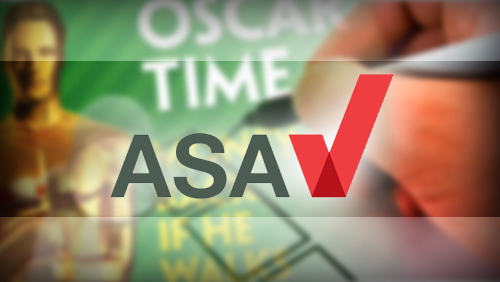Asa Guidance Gambling Advertising
The Committees of Advertising Practice (CAP) have recently introduced two new guidance documents to promote responsible gambling advertising.
- Asa Guidance Gambling Advertising Definition
- Asa Guidance Gambling Advertising Websites
- Asa Guidance Gambling Advertising Sites
- Asa Guidance Gambling Advertising Companies
The first relates to free bets and bonuses (and came into effect on 14 February 2018). The aim of this guidance is to help advertisers understand the ASA, CAP and Gambling Commission’s current position on acceptable claims, to provide their interpretations of commonly used terminology and to clarify how terms and conditions should be displayed or signposted. The full guidance note can be found here.
The second relates to social responsibility and problem gambling (and comes into effect on 2 April 2018). The aim of this guidance is to address specific concerns in these areas. The full guidance note can be found here.
ASA uses latest guidance on targeting to dismiss gambling ad complaints August 23, 2017. At the start of June, the Committee of Advertising Practice (CAP) issued guidance on how internet-based targeting can be used to help reduce children’s exposure to age-restricted ads online (read our comment on this here). We recently launched a reporting process for people to quickly notify the ASA of COVID-19 related claims in ads, often for health-related products, that take advantage of anxieties and vulnerabilities during the pandemic. This will allow swift action to be taken at a time of heightened risk for consumers. Gambling advertising is no different. Apr 09, 2020 The ASA itself will be monitoring industry advertising for a range of different issues in the context of the crisis. It highlighted ads that trivialise gambling (by encouraging repetitive or frequent participation), or refer in any way to indicators of problem gambling (such as solitary play or playing late at night) as being of particular concern. NOTE: This Code has been replaced by the new Gambling Advertising Code. The new Code is effective 4 November 2019 for all ads. Read the ASA Codes Committee report on the review of the gambling advertising standards here – Report on the review of the Code for Advertising Gaming and Gambling April 2019.
Guidance on “Free Bet” Promotions and Bonuses
The majority of current complaints to the ASA about gambling ads are about consumers having to make a deposit to access their 'free' bets / bonus or to withdraw their winnings.
In an attempt to combat this, the guidance (which is similar to previous CAP guidance on the issue) states that all advertisements that promote a free bet and/or a bonus must make the terms and conditions of the offer available to the consumer, at most only one click away, with all significant terms included in the advertisement itself (and positioned close to the headline offer).
Significant conditions are “those which are likely to affect a consumer’s understanding of the promotion, and include any requirements for a consumer to deposit their own funds, together with details of play-through or wagering requirements”.
The guidance also provides some examples of terminology currently used in gambling advertisements and explicitly states how these should be interpreted:

- 'Money back' offers must be in cash, not bonuses
- 'Risk free' offers must incur no loss to the customer
- 'Matched bets' – any stake limitation should be treated as a significant condition and stated up front.
Guidance on Responsibility and Problem Gambling
This guidance helps advertisers interpret the existing CAP and BCAP Code rules regarding responsibility and problem gambling by providing greater detail on approaches that are likely to be unacceptable in individual marketing communications. In particular:
- Offers (such as live odds or in-play betting) should not be presented in a way that creates an unjustifiable sense of urgency. Very short-term promotions where the marketer sets time limits combined with an urgent call to action such as 'Bet Now!' are likely to be regarded as unacceptable
- Whilst referring to the ease of use of a service (such as an app) is acceptable it must not be done in a way which trivialises gambling, for example by encouraging repetitive play
- Creating an erroneous perception of the level of risk involved or the extent of a gambler’s control over a bet or gambling in general should be avoided
- Problem gambling behaviours and associated behaviours should not be portrayed, even indirectly
- Placing undue emphasis on money-motives for gambling is likely to be regarded as breaching the rules.

Key Points to Note
Both guidance notes form part of the continued efforts by CAP to make sure regulation prevents harm and promotes responsible advertising. To supplement these, later this year CAP will publish further guidance focusing on the protection of children and young people.
Regulators such as the ASA and the Gambling Commission are expected to continue their recent focus and hard line approach to gambling advertising. It is therefore more important than ever for advertisers to consider the social implications behind their gambling ads and to ensure that any gambling advertisements do not fall short of these rules or indeed any incoming rules.
This article was written by Lydia Fernandes. For more informaiton please contact Lydia on +44 (0)20 7438 2104 or at lydia.fernandes@crsblaw.com.
InsightsUK Government to introduce new national security review regime
The UK Government has announced the introduction of new powers to review investments on national security grounds.
Data Protection post Brexit
Asa Guidance Gambling Advertising Definition
In the lead up to the UK's exit from the European Union, what data protection risks should your business be thinking about?
InsightsFocus Antitrust - 9 December 2020
The latest edition of our weekly competition law update.
COVID-19: Advertising Responsibly II
Update of the ASA’s response to adverts exploiting health, financial and employment concerns people are facing due to the pandemic.


The Committees of Advertising Practice (CAP) have recently introduced two new guidance documents to promote responsible gambling advertising.
The first relates to free bets and bonuses (and came into effect on 14 February 2018). The aim of this guidance is to help advertisers understand the ASA, CAP and Gambling Commission’s current position on acceptable claims, to provide their interpretations of commonly used terminology and to clarify how terms and conditions should be displayed or signposted. The full guidance note can be found here.
The second relates to social responsibility and problem gambling (and comes into effect on 2 April 2018). The aim of this guidance is to address specific concerns in these areas. The full guidance note can be found here.
Guidance on “Free Bet” Promotions and Bonuses
The majority of current complaints to the ASA about gambling ads are about consumers having to make a deposit to access their 'free' bets / bonus or to withdraw their winnings.
In an attempt to combat this, the guidance (which is similar to previous CAP guidance on the issue) states that all advertisements that promote a free bet and/or a bonus must make the terms and conditions of the offer available to the consumer, at most only one click away, with all significant terms included in the advertisement itself (and positioned close to the headline offer).
Significant conditions are “those which are likely to affect a consumer’s understanding of the promotion, and include any requirements for a consumer to deposit their own funds, together with details of play-through or wagering requirements”.
The guidance also provides some examples of terminology currently used in gambling advertisements and explicitly states how these should be interpreted:
- 'Money back' offers must be in cash, not bonuses
- 'Risk free' offers must incur no loss to the customer
- 'Matched bets' – any stake limitation should be treated as a significant condition and stated up front.
Guidance on Responsibility and Problem Gambling
This guidance helps advertisers interpret the existing CAP and BCAP Code rules regarding responsibility and problem gambling by providing greater detail on approaches that are likely to be unacceptable in individual marketing communications. In particular:
- Offers (such as live odds or in-play betting) should not be presented in a way that creates an unjustifiable sense of urgency. Very short-term promotions where the marketer sets time limits combined with an urgent call to action such as 'Bet Now!' are likely to be regarded as unacceptable
- Whilst referring to the ease of use of a service (such as an app) is acceptable it must not be done in a way which trivialises gambling, for example by encouraging repetitive play
- Creating an erroneous perception of the level of risk involved or the extent of a gambler’s control over a bet or gambling in general should be avoided
- Problem gambling behaviours and associated behaviours should not be portrayed, even indirectly
- Placing undue emphasis on money-motives for gambling is likely to be regarded as breaching the rules.
Key Points to Note
Both guidance notes form part of the continued efforts by CAP to make sure regulation prevents harm and promotes responsible advertising. To supplement these, later this year CAP will publish further guidance focusing on the protection of children and young people.
Regulators such as the ASA and the Gambling Commission are expected to continue their recent focus and hard line approach to gambling advertising. It is therefore more important than ever for advertisers to consider the social implications behind their gambling ads and to ensure that any gambling advertisements do not fall short of these rules or indeed any incoming rules.
This article was written by Lydia Fernandes. For more informaiton please contact Lydia on +44 (0)20 7438 2104 or at lydia.fernandes@crsblaw.com.
InsightsUK Government to introduce new national security review regime
The UK Government has announced the introduction of new powers to review investments on national security grounds.
Data Protection post Brexit
In the lead up to the UK's exit from the European Union, what data protection risks should your business be thinking about?
InsightsFocus Antitrust - 9 December 2020
Asa Guidance Gambling Advertising Websites
The latest edition of our weekly competition law update.
Asa Guidance Gambling Advertising Sites
Asa Guidance Gambling Advertising Companies
COVID-19: Advertising Responsibly II
Update of the ASA’s response to adverts exploiting health, financial and employment concerns people are facing due to the pandemic.